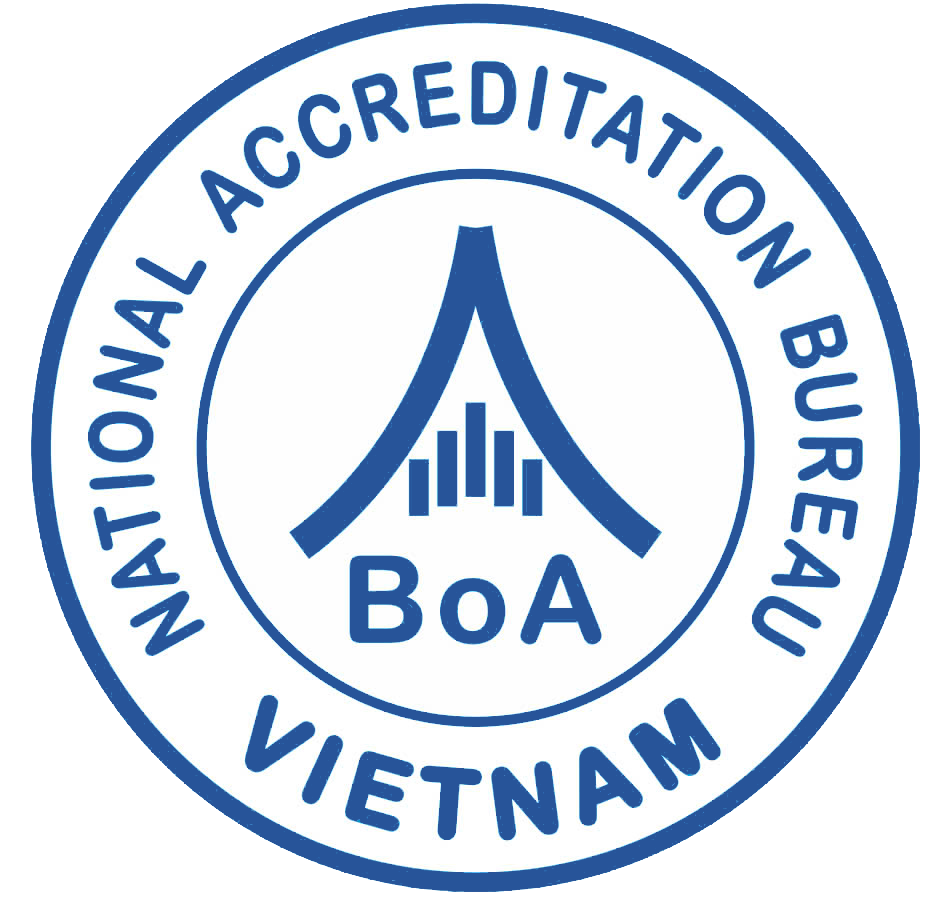VILAS
Vietnam Laboratory Accreditation Scheme (VILAS)

Vietnam Laboratory Accreditation Scheme - VILAS has been implemented by the National Accreditation Bureau (BoA) since 1997 and is one of the first accreditation programs in Vietnam. The program was developed in accordance with the ISO/IEC 17011 standard and applies the ISO/IEC 17025 standard for assessing the competence of testing and calibration laboratories.
Since 2000, the VILAS program has been recognized as a member of the Mutual Recognition Arrangement (MRA) under:
- Asian Pacific Accreditation Cooperation (APAC)
- International Laboratory Accreditation Cooperation (ILAC)
Participation in these Arrangements means that VILAS accreditation results are widely recognized by accreditation bodies and member countries around the world. This affirms the international credibility of the VILAS program, enabling testing and calibration laboratories in Vietnam to enhance their global competitiveness, reduce the need for re-assessments, and facilitate international trade.
The National Accreditation Bureau implements the VILAS program with a network of well-trained lead assessors and technical assessors who meet international standards, possess in-depth professional knowledge, and have extensive practical experience. The VILAS technical assessors team is selected from specialized regulatory agencies, universities, research institutes, and reputable laboratories.
More than 1000 testing laboratories and calibration laboratories have been accredited.
Accreditation benefit
- To improve technical competence and management of laboratories
- To ensure the accuracy, confidence of test and calibration results
- To facilitate the acceptance of test and calibration results in Vietnam and international
- To support for integrate process (assist to reduce technical barriers in trade - TBT) to pass recognition
- To ensure timely and reduce costs for society no need to retest
- To integrate the laboratory accreditation activities of Vietnam with those of regional and international countries
Who is need
Body that performs one or more of the following activities:
- Testing
- Calibration
- Sampling, associated with subsequent testing or calibration
Accreditation criteria
VILAS use the international standard ISO/IEC 17025 “General requirement for the competence of testing and calibration laboratories” and supplementary requirements for each field for accreditation criteria.
Accreditation fields
- Biological
- Chemical
- Pharmaceutical
- Calibration – Measurement
- Mechanical
- Civil engineering
- Electrical – Electronic
- Non destruction testing (NDT)
FAQs
Accreditation may be required by government or federal regulatory bodies, industry organizations, local government requirements, or individual customers.
What is the process to be accredited according to ISO/IEC 17025:2017?
Refer to "How to get accredited?" The key technical factors mentioned in the standard include:
- Validity and suitability of the method
- Technical competence of personnel
- Traceability of measurements to national and international standards
- Suitability, calibration, and maintenance of equipment
- Handling of testing/calibration items
- Quality control and assurance processes
- Reporting of results
The BOA (BAC) Accreditation Criteria packages include several documents available for download.
BOA's general documents include informational materials and do not serve as accreditation criteria.
There are General Accreditation Criteria applicable to all facilities and Specific Accreditation Criteria designed for specific fields and industry activities. These documents outline the mandatory accreditation criteria that must be met.
- General accreditation criteria
- Specific accreditation criteria
The General Accreditation Guidelines and Specific Accreditation Guidelines provide non-mandatory recommendations.
- General accreditation guidelines
- Specific accreditation guidelines
The final version of ISO/IEC 17025 was published in 2005, and since then, market conditions and technology have changed. The new version – ISO/IEC 17025:2017, includes changes in technical aspects, terminology, and developments in IT technology. It also takes into account the latest version of ISO 9001.
